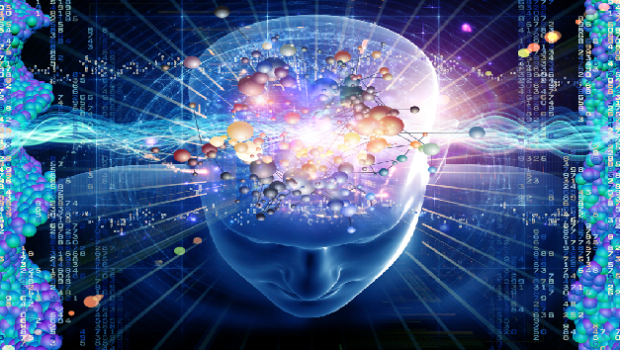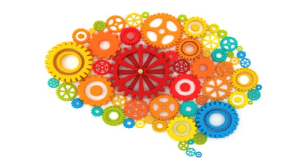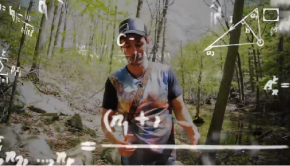Low Latent Inhibition – A Higher Level of Consciousness?
Lately I have been reading a book called ‘The Future of the Mind’ by Michio Kaku and i have to say it is an absolutely extraordinary read. I would recommend it to anyone with any kind of interest in the mind.
In one section of the book he refers to the space-time theory of consciousness, and how we can apply scores and levels to the consciousness of animals/lifeforms on earth.
A great exert from the book really helps highlight how it might be possible that some individuals with LLI may be on higher levels of consciousness and awareness than others (in terms of the feedback loops that contribute towards their consciousness – I mention feedback loops shortly):
“For example, the simplest level of consciousness is a thermostat. It automatically turns on an air conditioner or heater to adjust the temperature in a room, without any help. The key is a feedback loop that turns on a switch if the temperature gets too hot or cold. Each feedback loop registers “one unit of consciousness” so a thermostats would have a single unit of level 0 consciousness that is 0:1.
In this way, we can rank consciousness numerically, on the basis of the number and complexity of the feedback loops used to create a model of the world. Consciousness is then no longer a vague collection of undefined, circular concepts, but a system of hierarchies that can be ranked numerically. For example, a bacterium of a flower has many more feedback loops, so they would have a higher level of level 0 consciousness. A flower with ten feedback loops (which measure temperature, moisture, sunlight, gravity etc) would have a level 0:10 consciousness.”
*now skipping out the part of the book that covers off level 1 and 2 consciousness, I’ll move to the human consciousness of level 3*
“With this framework for consciousness, we see that humans are not unique, and that there is a continuum of consciousness. As Charles Darwin once commented “The difference between man and the higher animals, great as it is, is certainly one of degree and not of kind”. But what separates human consciousness from that of animals?
Humans are alone in the animal kingdom in understanding the concept of tomorrow. Unlike animals, we constantly ask ourselves ‘what if’. Weeks, months, and even years into the future, so i believe that level 3 consciousness creates a model of its place in the world and then simulates it into the future, by making rough predictions. We can summarize this as follows:
Human consciousness is a specific form of consciousness that creates a model of the world and then simulates it in time, by evaluating the past to simulate the future. This requires mediating and evaluating many feedback loops in order to make a decision to achieve a goal.
By the time we reach level 3 consciousness, there are so many feedback loops that we need a CEO to sift through them in order to simulate the future and make a final decision. Accordingly, our brains differ from those of other animals, especially in the expanded prefrontal cortex, located just behind the forehead, which allows us to ‘see’ into the future”.
With that said (and given that human beings will all have various degrees of ‘feedback loops’ to dictate their level of consciousness on an individual level, including those with LLI), I believe that a select few with LLI are on a extremely high level of consciousness, far higher than the majority of human beings.
So for example, if you took someone considered to be stupid (or with a very low IQ score) they still seek to simulate the future so remain level 3 consciousness but their brain may only have 100 feedback loops when doing so, so their level would be 3:100.
The average person may have a consciousness level of 3:250 if they have 250 feedback loops responsible for their simulation of future events and things going on around them and within their environment.
But a select few with low latent inhibition may have consciousness levels of something like 3:1000, 3:2000 even or higher (point is that it’s potentially a lot more than the vast majority of people).
With that said it seems far more understandable why a few individuals with low latent inhibition feel as though they aren’t human sometimes, because they have a far greater number of feedback loops contributing to their consciousness than most people. The average person with a normal level of latent inhibition may have far fewer feedback loops than that of a high functioning individual with low latent inhibition – so on a conscious level it may be possible at some point for human beings to potentially be sub-categorized (consciously) into different types of ‘human animal’ as we do with the animal kingdom, based on their level of consciousness.
Those with a low latent inhibition are continually processing a greater amount of stimuli than normal, both on a conscious and subconscious level due to them not having the same ‘filters’ in place as the average person. Could this therefore mean that those with low latent inhibition have more feedback loops contributing toward their conscious mind, the lower the latent inhibition the more feedback loops there may be?
I believe this is why a few people with LLI feel so ‘alien’, it’s because they’re on a massively higher level of consciousness than people around them, which is responsible for their feeling alienated by people around them, and often feel as though they aren’t human at all. Although we as a race are all human, we certainly do operate on different levels of conscious thinking so will it in the near future be possible to classify ‘types’ of human beings based on the approximate number of feedback loops that contribute to their level of consciousness?
It’s a fascinating topic and i would urge everyone here to read the book.
“The future of the mind” by Micho Kaku.











Note of Disclosure: I have “The Future of the Mind” on my personal “to read” shelf, and am very excited for when I get through the few other books ahead of it and actually tackle it. Though, that is certainly not to say that I am not excited to devour the books that I have placed ahead of it.
Anywho, I largely agree with the premise of your post (that consciousness is a phenomenon on a continuum that can be pretty well approximated by the idea of feed back loops, that some humans, namely those with LLI and high intelligence, have “higher” levels of consciousness, etc.), but wanted to point out to you something that fascinates me (and that, at least as I read between the lines on your post, you may not be aware of).
The passages that you pull from Kaku seem to indicate that humans, as a species, are unique in the known world in terms of their general level of consciousness. In response to this sort of assertion, I always think, “What about cetaceans (namely dolphins and orcas) and elephants?” I’ll leave it to you to research why exactly I might make such a question, but it largely has to do with those species having comparable brain related metrics to humans (absolute brain size, encephalization quotient, widespread presence of spindle cells, complexity of brain folds), complex social structures, as well as persistent anecdotal evidence of behaviors that suggest highly complex and self-referential levels of thought. For me, the fact that these species are so alien to our own suggests the possibility that their species-specific markers of high, perhaps “human”-level, intelligence may be strongly obscured from our own view (the example of the incredible development of the cetacean parietal cortices, especially when compared with humans is, for me at least, very illuminating).
So, in short, if we view intelligence and consciousness as phenomena derived from different hierarchies based on the preponderance of feedback loops, we may find examples of intelligences that may not be so easy to dismiss as beneath our own. With “our” of course referring to humans in general, not to those of us with LLI. Duh 😉
Consciousness = matter. We process information. We have input (ears, nose, tongue, eyes, tactile sensations), processing (our thought process, including our will), output (our behavior). Our brains can process information, so every part of it, including the most fundamental structures, is pretty much the same. Therefore, consciousness exists everywhere, therefore, consciousness = matter. QED. This is Chris Langan’s CTMU. Also when on electon falls photon, electron changes his energetic level and emiss other photon, and this process depends on fallen photon length, so this is a processing of information. Also radioactive decay is possible. About topic I agree I’m feeling myself as I’m 100-200 years ahead of human civilization in terms of feeling reality and some deeper experiences